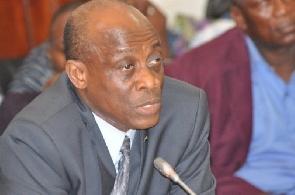A former Finance Minister, Seth Terkper, stated that the manner in which the government conducted the financial sector clean-up exercise was not the best. He noted that the resultant job losses were detrimental to the economy's growth. The government spent a total of GH¢23billion to undertake the financial sector clean-up in 2017 and 2019. Read the full story originally published on October 28, 2020 by 3news Former Finance Minister Seth Terkper has said the approach adopted by the Bank of Ghana and the Finance Ministry towards the banking clean-up exercise was wrong. He said the exercise could have been carried out without loss of jobs on the scale that was witnessed during the exercise. His comments come after Finance Minister Ken Ofori-Atta defended the approach that was adopted towards the clean-up exercise. Mr. Ofori-Atta told TV3’s Etornam Sey in an exclusive interview on Monday, October 26, 2020, that the financial sector is the heartbeat of every economy globally. A weak financial sector, he said, will have dire consequences for the economy and its people, a situation that demands that central authorities step in swiftly to address. Therefore, he said, the Government of Ghana will act quickly to address any challenges that may emerge in the sector again after the recent cleanup exercise. The Bank of Ghana with support from the Finance Ministry swept through the financial sector of the economy between the period 2017 and 2019. The central bank first started by revising the minimum paid-up capital for existing banks and new entrants from ¢120 million to ¢400 million. According to the regulator, this was to test the viability of the banks. The banks that were unable to meet this new requirement were either merged or collapsed. Following this action, some nine local banks, 23 savings & loans companies, 347 microfinance institutions, 39 finance houses, and 53 fund management companies closed down during the exercise. In total, the government spent GHSS23billion to undertake this exercise UniBank, The Sovereign Bank, The Beige Bank, Premium Bank, The Royal Bank, Heritage Bank, Construction Bank, UT Bank, Capital Bank all collapsed. Mr. Ofori-Atta said “Once you have the problem, you have to solve it because the financial architecture is the (basis) for any development. “So whether we like or not we had to do that. Now that we have done that we move ahead.” Asked whether if the situation presents itself the government will do it again in the same manner, he answered “You meet problems as a government that is what they elected you for and so you solve it. “And then you begin by commissioning this to give people the sense of hope for the future to say this thing can be done, and they have faith in you so lets us go with them. “If the engine is not functioning you can’t build on top of that so you had to solve the problem. “Is there a way you improve on what you are doing? Of course yes there is always a way to do that but fundamentally was the approach necessary, no question about that.” But Mr Seth Terkper, when asked whether he supports this approach while speaking in an interview with Etornam Sey on the New Day programme Wednesday, October 28 said “No.” He further explained that the government had the Energy Sector Levy left behind by the previous NDC administration, to use in strengthening the banks but did not.
Business News of Friday, 28 October 2022
Source: www.ghanaweb.com

















